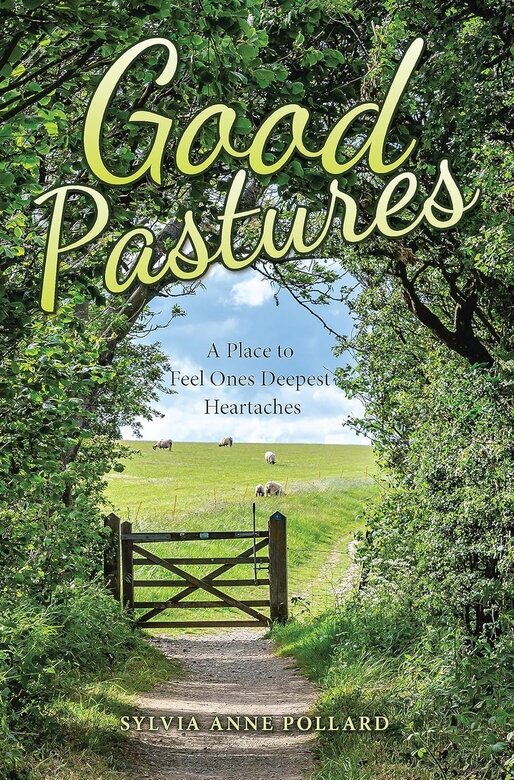
Steeped in contemplation and the solace that only time can bring, Good Pastures: A Place to Feel Ones Deepest Heartaches by Sylvia Anne Pollard is a moving testament to the human spirit and the healing power of the divine. As a devoted mother and a powerful warrior of faith, this resilient poet has alchemized pain into stark and empowering verse.
The loss of a child is an unimaginable tragedy for parents, and the weight of Pollard’s loss is heavy on these pages. The poet’s stated purpose is to transmute the grief over Payton’s death into words of comfort and encouragement for others who are experiencing a similar pain, which she achieves throughout this emotionally vulnerable and soul-baring work. Painting a portrait of crisis and the seemingly endless journey towards closure, these poems are a powerful balm for grief.
While the poems do vary in subject matter, from marriage and faith to anxiety and the little things in life worth appreciating, most of the pieces directly or indirectly relate to loss, mortality, and the turbulent waters of bereavement. There are quite a few standout pieces in the collection, including “If Only” and “Scar,” which accesses even more visceral and vulnerable truths than other poems. On the other extreme is “My Happy Place,” a refreshing reminder to empathic readers that there is joy and hope on the other side of loss. The ordering and flow of the poems adds emotional nuance, while also providing a moment to breathe between intense or even triggering sentiments.
Many of the poems are paired with related biblical passages, which are often the source of inspiration for certain pieces, as well as their conclusions. The placement of these passages of Scripture directly after the poem makes them feel like an extension of the poet’s voice, but also offers a meditative break within the reading process, which is often necessary with such dense and heartwrenching poetry. This structure gives the entire collection a spiritual foundation – one that continues to build through Pollard’s linguistic and thematic choices. There are many figures from biblical history whose faith was tested by God through struggle and loss, and this poetry speaks to this feeling of living within a crucible designed by a higher power, but recognizing that faith and trust is the only way forward.
On a technical level, the poetry is primarily free verse, without any formal rhyme or meter in the majority of the pieces, although some play with assonance, consonance, and the occasional end-line rhyme. There isn’t a lot of variety in form or style, nor many instances of creative enjambment or linguistic wordplay, so these openhearted offerings can sometimes read like prose in a fragmented format; Pollard doesn’t use much poetic license with metaphors or imagery, preferring to stay in the objective reality of her own experience.
Some poems do feel as if they’re covering similar ground, and while there is no limit to how many times a poet should summon sadness in their work, this collection may not be immediately accessible to people not actively experiencing the pain of grief. However, those are the people who the poet is trying to reach most and the collection gives the reader license to accept and reflect on the process of mourning.
Curated with a profound sense of empathy, Good Pastures is a lyrical and enlightening examination of life’s potential for both beauty and heartache.
Book Links
STAR RATING
Design
Content
Editing
Get an Editorial Review | Get Amazon Sales & Reviews | Get Edited | Get Beta Readers | Enter the SPR Book Awards | Other Marketing Services























Leave A Comment